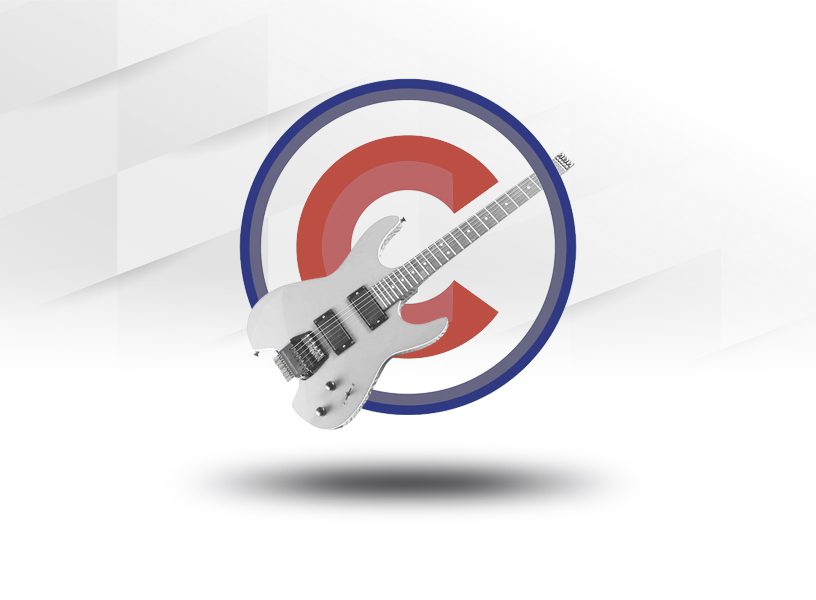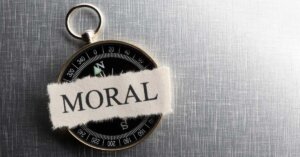Music is a unique department in the realm of Copyright that could sometimes cause unintended complications and misunderstandings, even amongst the most seasoned musicians. Recently, a somewhat awkward incident between two legendary figures from different genres, Deep Purple and Rhoma Irama, could provide the general public with valuable insight on music copyright.
Last week, the English group Deep Purple held a concert in Surakata as part of their 2023 world tour. This marked the legendary band’s second appearance in Indonesia since their Jakarta show in 1975. As one of rock’s most celebrated acts, the enduring allure of Deep Purple has made their return a much-anticipated event. Both members of the 70s generation and younger ones eagerly welcomed Ian Paice, Ian Gillian, Roger Glover, and co back to Indonesia. Some public figures also attended the concert, including President Jokowi and the Governor of Central Java, Ganjar Pranowo.
Deep Purple’s concert, held in Edutorium Universitas Muhammadiyah, was a committed nostalgic affair as the band invited Indonesia’s own God Bless as their opening act, just as they did back in 1975. The fun did not stop there for the audience. They were also treated by a surprise act: Soneta, the group led by the King of Dangdut himself, Rhoma Irama. This was where the problem started.
Soneta’s surprise act was the first performance for the event. They kicked off their set by playing the iconic riff of Deep Purple’s 1972 single, “Smoke on the Water .”The audience cheered on, and the concert seemed to be starting on a positive note until one of Deep Purple’s staff members walked onto the stage to communicate directly to Rhoma Irama in a not-so-pleasant manner, as seen in this clip. It’s safe to assume that the Deep Purple team didn’t take too kindly to Sonata performing their song, as they stopped playing the Smoke on the Water riff immediately after the interruption.
Later, the event’s promoter, Anas Syahrul Aimi, shared his explanation regarding the incident. “Deep Purple assumed that (Soneta) would play the full song when they only wanted to do the first 10-15 seconds, just for ice breaking. They understood after it was explained,” according to Aimi.
While Deep Purple has yet to release a statement, fans have speculated that the incident might have been caused by a disagreement regarding Copyright—leading to online discourses regarding the legal ethics behind covering songs in concerts. Here’s what you should know:
Royalties in Music
Copyright protection, in essence, covers two basic rights: moral rights and economic rights. These two categories are expressed in most Copyright laws, including in Indonesian regulation. Law No. 28 Year 2014 defines moral rights in Article 5, while Article 8 explains economic rights.
Moral rights concern the right to take certain actions to preserve and protect their link with their work. While economic rights, which is relevant to this case, concern the right to derive financial reward from others’ use of their works. Article 8 of Indonesian Copyright Law defines it as “the exclusive right of the Author or the Copyright Holder in order to gain economic benefits from the Works.”
As an adherence to the principle of economic rights, the use of works could bring financial rewards, and the rights-holders of such works are entitled to those rewards. The work in music would be songs, and using songs requires authorizations and royalty payments.
In Indonesia, this is regulated by Government Regulations No. 56 on Management of Music Royalties. Article 3 of the regulations stipulates that anyone may use songs for “commercial, public services” by paying royalties to Authors or Rights-Holders through LMKM (Royalty Management Body). Meanwhile, the article further elaborates on “commercial, public services” to include a variety of commercial ventures– including restaurants, cafes, airplanes, recreational centers, seminars, and most importantly, concerts.
Thus, it can be concluded that because concerts are commercial affairs that rake in profit, and music is the lifeblood of such events, the creators or right-holders of the music utilized in the concerts are entitled to financial reward. We might not know exactly the problem behind the incident between Deep Purple and Soneta, but one thing is sure, if anyone were to perform Smoke in The Water for a commercial venture, in this case, a concert, then Copyright laws dictate that they must pay royalties to Deep Purple.
In regards to royalties in concerts, Indonesian music legend Ahmad Dhani has expressed his thoughts. Dhani is known to be very vocal and passionate about intellectual property (among other things) and recently, he conducted a press conference on the matter.
Dhani explained the “moral” obligation for other artists to ask the original artist for permission before covering their songs, such as what he wished other artists would do before performing his works by Dhani’s band, Dewa. He stressed on the importance of royalties and how much of the Indonesian public is still ignorant of the subject.
In the press conference, Dhani highlighted one key issue that could sometimes cause confusion or worry among aspiring musicians. He stated that while he would expect royalty payments for performances of his songs in concerts, he wouldn’t demand any for performances by amateur acts, such as the singers in small cafes or restaurants. This demonstrates that copyright infringement is a complaint-delict, category of offense which cannot be prosecuted without a complaint by the victim. While we should always respect copyright, it’s important to understand that infringements are not always followed by prosecutions.
Furthermore, Dhani also highlighted another aspect of music copyright that may not be widely known: the difference between performers and authors/creators. He explained that Once, who was the vocalist for many of Dewa’s iconic song, still require to ask for authorization when he performs Dewa songs as a solo act. This is because the rights to Dewa’s songs are owned by the songwriter/creators, Ahmad Dhani, while Once was just the “performer” on the songs. This means that every time Once or Ari Lasso perform Dewa songs as solo acts, then royalty payments would be due for Ahmad Dhani. Or at least, they should be.
For more questions regarding copyright or anything else regarding IP, do not hesitate to contact us via ambadar@ambadar.co.id






